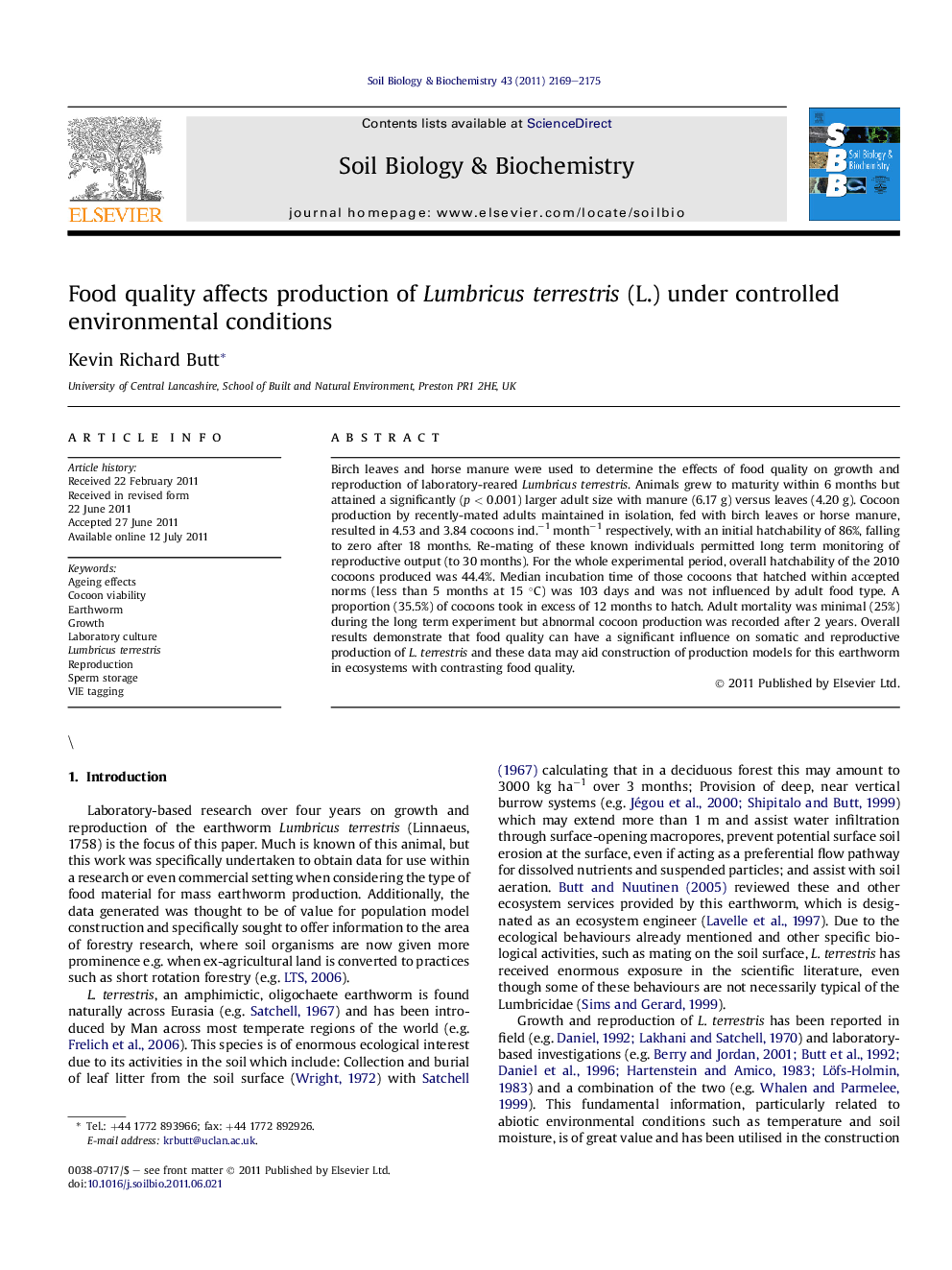| Article ID | Journal | Published Year | Pages | File Type |
|---|---|---|---|---|
| 2025090 | Soil Biology and Biochemistry | 2011 | 7 Pages |
Birch leaves and horse manure were used to determine the effects of food quality on growth and reproduction of laboratory-reared Lumbricus terrestris. Animals grew to maturity within 6 months but attained a significantly (p < 0.001) larger adult size with manure (6.17 g) versus leaves (4.20 g). Cocoon production by recently-mated adults maintained in isolation, fed with birch leaves or horse manure, resulted in 4.53 and 3.84 cocoons ind.−1 month−1 respectively, with an initial hatchability of 86%, falling to zero after 18 months. Re-mating of these known individuals permitted long term monitoring of reproductive output (to 30 months). For the whole experimental period, overall hatchability of the 2010 cocoons produced was 44.4%. Median incubation time of those cocoons that hatched within accepted norms (less than 5 months at 15 °C) was 103 days and was not influenced by adult food type. A proportion (35.5%) of cocoons took in excess of 12 months to hatch. Adult mortality was minimal (25%) during the long term experiment but abnormal cocoon production was recorded after 2 years. Overall results demonstrate that food quality can have a significant influence on somatic and reproductive production of L. terrestris and these data may aid construction of production models for this earthworm in ecosystems with contrasting food quality.
► L. terrestris grew more rapidly and reached maturity at a higher mass when fed horse manure compared with fallen birch leaves. ► Provision of green birch leaves enhanced mature L. terrestris growth and cocoon production. ► Viable cocoons were produced up to 17 months after the last mating event. ► Mean cocoon production over 30 months was 4.2 cocoons per individual per month with 44% of these viable. ► Ageing animals produced abnormal cocoons after 2 years, which did not hatch.
